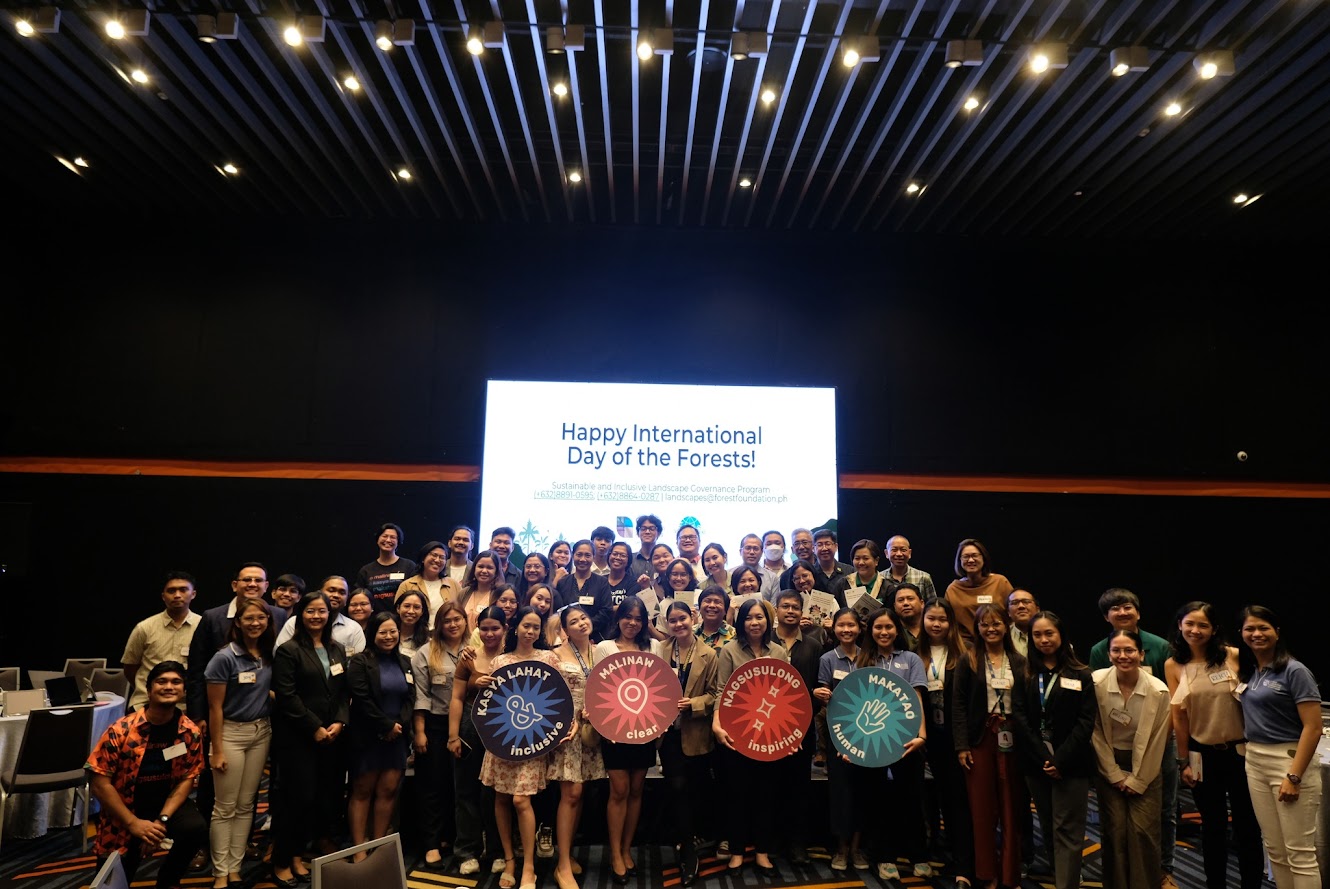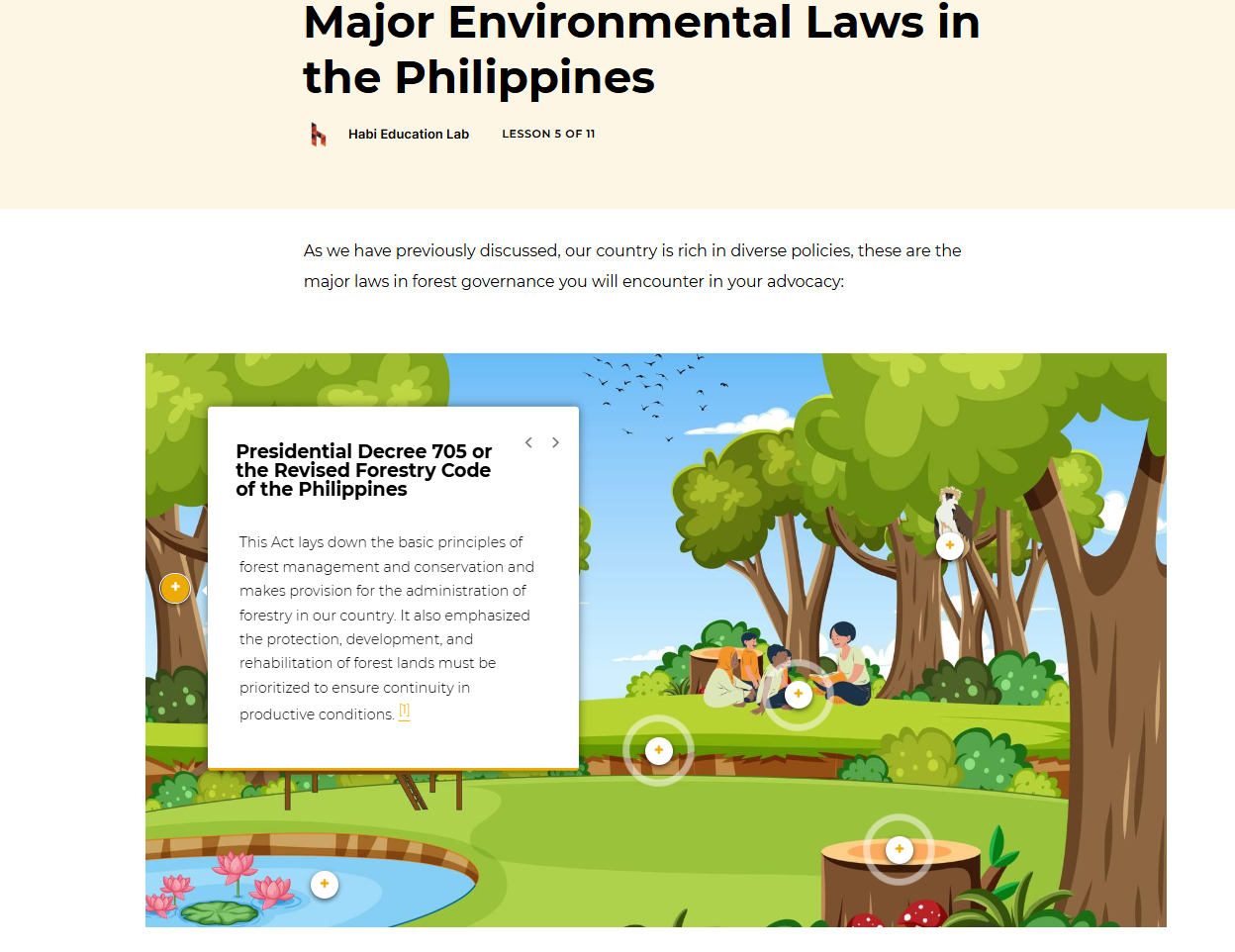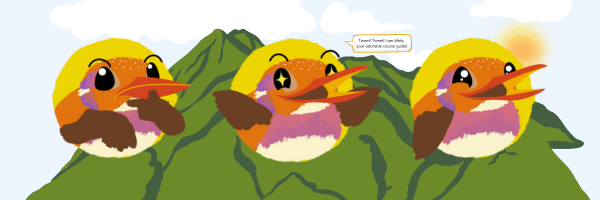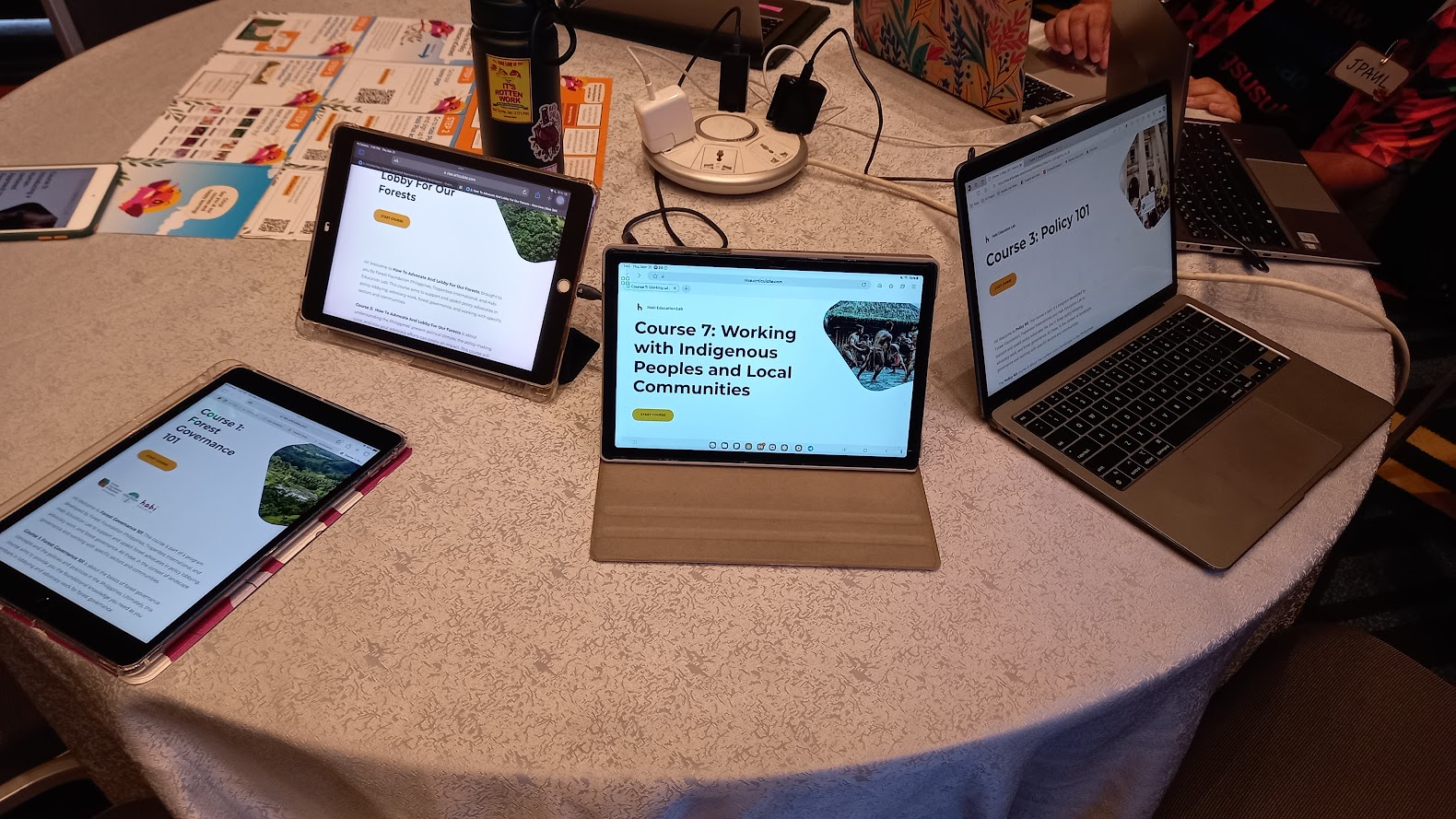Understanding our Learners
Through discussions with subject-matter experts and potential course takers, we mapped out key topics that would be most relevant to the learners. These conversations revealed the diversity of our audience—some were complete beginners, while others had varying degrees of expertise. This led us to develop three distinct learning pathways: novice, intermediate, and advanced, ensuring that each learner could engage at the right level.
Writing the Content
Staying true to our design principles—clear, inclusive, human, and inspiring—we transformed academic and technical language into accessible, engaging lessons. Lengthy laws were distilled into key insights without losing their depth, and environmental jargon was explained in simple, relatable terms. Our goal was not just to inform but to invite participation, making even the most complex topics digestible for all.
Bringing the Courses to Life
With the content ready, we moved on to designing the courses. We took what was once just a bunch of documents and turned it into an interactive experience.
Adding a Friendly Face
Self-paced courses can often feel solitary. So, we asked: What if learners had a companion to guide and support them throughout their journey? Enter Mela, our course guide! Mela adds a human and playful touch, offering encouragement, guidance, and a sense of connection throughout the course.
Testing and Feedback
We embraced an iterative process—submitting our first round of course content for review, gathering feedback, and making improvements. This led to multiple rounds of refining our content and videos, allowing us to share our work early, fail early, and adjust accordingly.
Sharing our eCourses to more communities
After the rigorous (but fun!) process of creating the eCourses, they are now ready to be shared –hopefully scaling the impact and involvement of people in forest conservation.
At Habi, we believe that when learning is accessible, more people can step up, take part, and make a real impact in their chosen fields. Ready to explore and learn through our eCourses? Click here https://bit.ly/FFPPolicyAdvocacyeCourse to get started!




